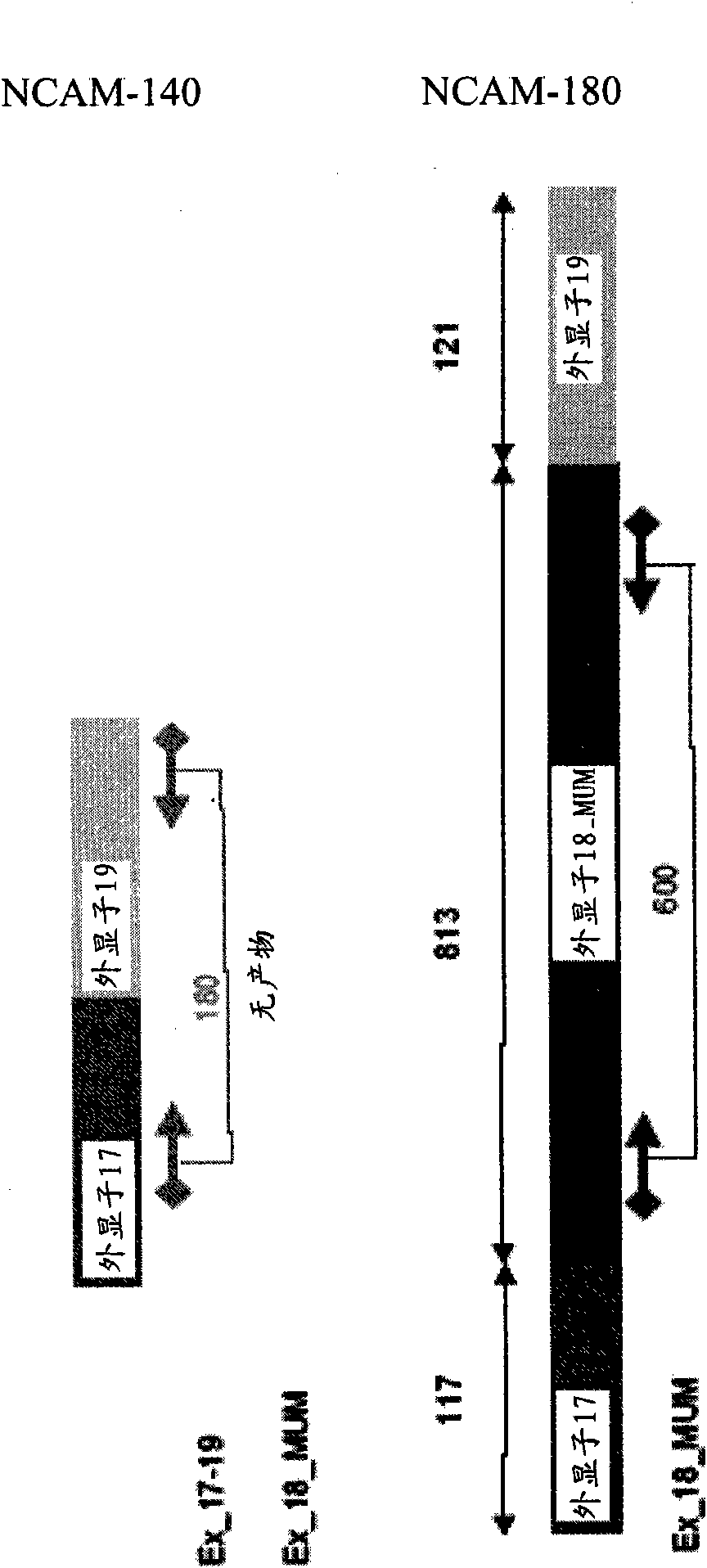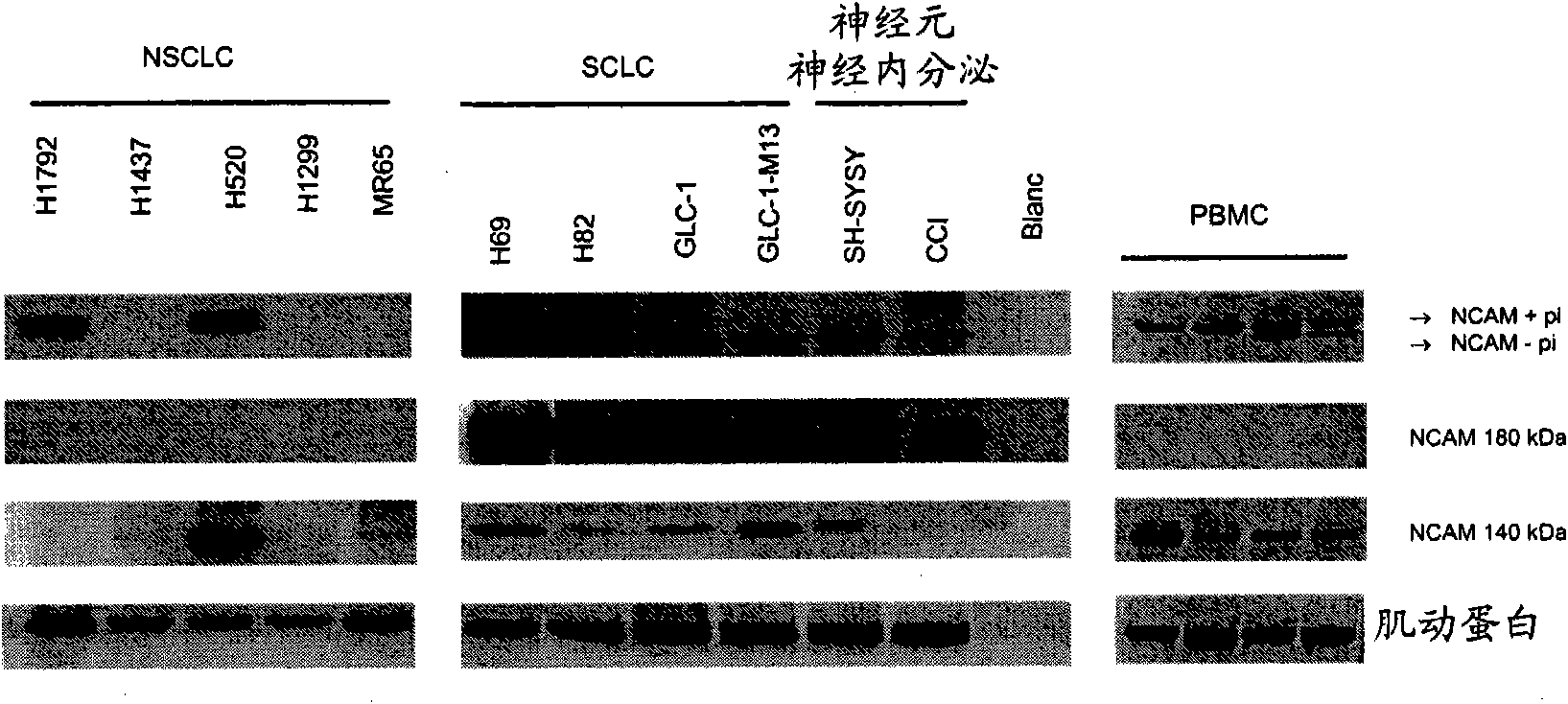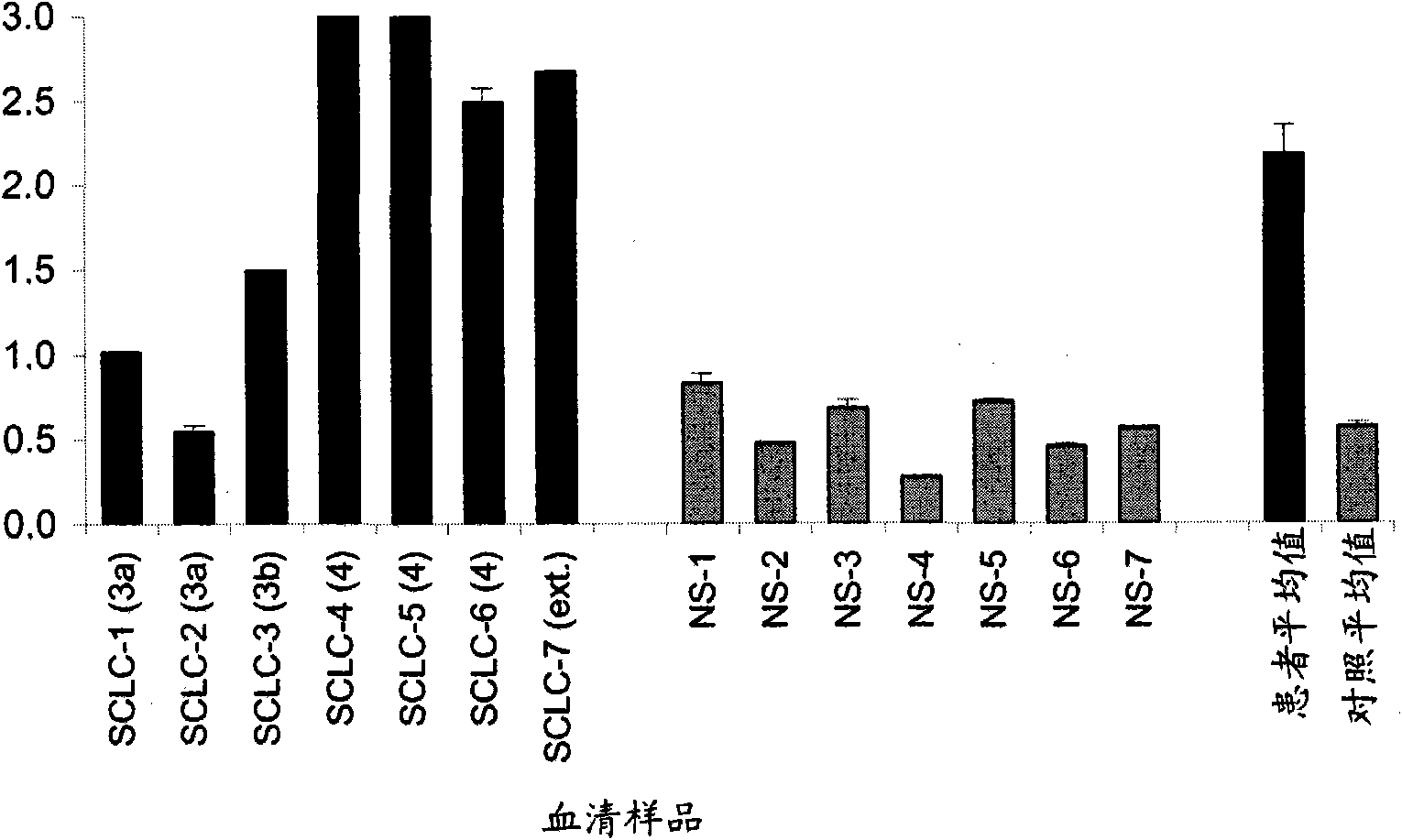Small cell lung carcinoma biomarker panel
A technology for lung cancer and cytokeratin, which is applied in the fields of treatment and prevention, cancer diagnosis, and prognosis, and can solve problems such as undetermined prognostic predictors.
- Summary
- Abstract
- Description
- Claims
- Application Information
AI Technical Summary
Problems solved by technology
Method used
Image
Examples
Embodiment 1
[0102] Example 1: Experiments examining the differential expression of NCAM 180 (NCAM exon 180) in various cell lineages.
[0103] Differential expression of NCAM-180 was assessed in different cancer cell lines and healthy controls using known technical procedures including:
[0104] - RNA extraction and cDNA synthesis according to standard protocols; and
[0105] -according to figure 1 PCR amplification was performed to assess the expression of NCAM exon 18 according to the principle shown.
[0106] As part of NCAM-180, expression of NCAM exon 18 was found in cell cultures from neuroendocrine tumors (SH-SYSY and CCI), especially in small cell lung cancer (SCLC) cell lines overexpression of ( figure 2 ). Expression of the NCAM 180 kDa splice variant was not found in peripheral blood mononuclear cells (PBMCs) of healthy controls. The results of other cell lines are shown in Table 1.
[0107]
[0108]
Embodiment 2
[0109] Example 2: Serum markers for neuroendocrine differentiation of lung tumors
[0110] a. Detection of NCAM antigen in human serum samples.
[0111] NCAM, including the splice variants NCAM 120, 140, and 180, is a neuroendocrine differentiation marker. NCAM is expressed in all small cell lung cancers (SCLC) and 20% of non-small cell lung cancers (NSCLC). In addition, all tumors with features of neuroendocrine differentiation, natural killer (NK) cells comprising 10% of the total peripheral blood mononuclear cells (PBMC) and NCAM expression in the NSCLC stroma were also characterized. On the other hand, in normal lung tissue, NCAM expression was found only sporadically. In this experiment, we found that NCAM antigen could be detected in the serum of patients with neuroendocrine differentiated tumors (SCLC serum (N=7, PromedDx)), while in the healthy control group (N=7, healthy volunteers) NCAM antigen was not found in the sera. We used a sandwich ELISA to measure the se...
Embodiment 3
[0122] Example 3: Experiment to measure serum levels of NCAM 180 / NCAM exon 18-antigen.
[0123]NCAM exon 18 is specifically expressed in the NCAM 180 KDa splice variant of the NCAM protein. NCAM exon 18 is specifically expressed in the cytoplasmic tail of the transmembrane glycoprotein NCAM. This NCAM splice variant is specific for SCLC (see PCT publication WO2007-104511). With this assay, we demonstrate that NCAM exon 18-antigen can be detected in the sera of SCLC patients, and that NCAM exon 18 in the sera of SCLC patients (N=7) - Antigen titers are much higher. These data suggest that NCAM exon 18 serum antigen titers can be used as a biomarker for SCLC diagnosis. A sandwich ELISA was used to measure NCAM exon 18-tumor antigen levels in serum samples. SCLC serum samples (N=7, stage 3a (N=2), stage 3b (N=1), stage 4 (N=3) and extended disease stage (N=1)) were obtained from PromedDx, and control serum was isolated from healthy Clotted blood obtained from volunteers (smo...
PUM
 Login to View More
Login to View More Abstract
Description
Claims
Application Information
 Login to View More
Login to View More - R&D
- Intellectual Property
- Life Sciences
- Materials
- Tech Scout
- Unparalleled Data Quality
- Higher Quality Content
- 60% Fewer Hallucinations
Browse by: Latest US Patents, China's latest patents, Technical Efficacy Thesaurus, Application Domain, Technology Topic, Popular Technical Reports.
© 2025 PatSnap. All rights reserved.Legal|Privacy policy|Modern Slavery Act Transparency Statement|Sitemap|About US| Contact US: help@patsnap.com



